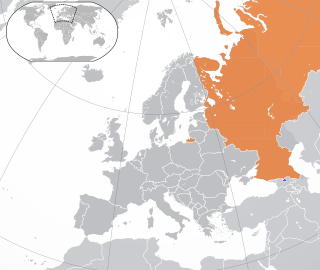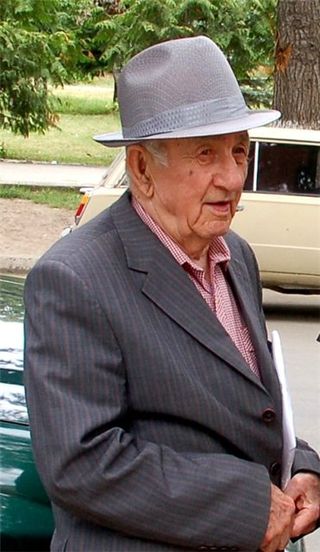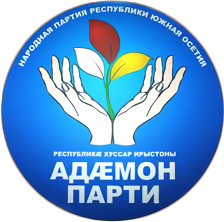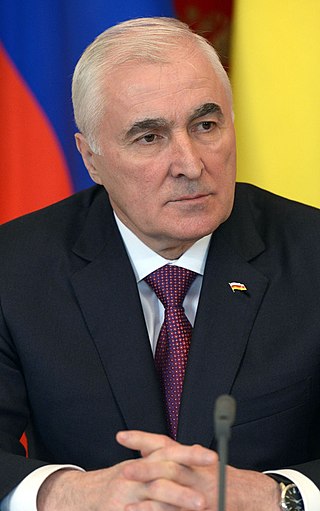Related Research Articles

South Ossetia, officially the Republic of South Ossetia or the State of Alania, is a partially recognised landlocked country in the South Caucasus. It has an officially stated population of just over 56,500 people (2022), who live in an area of 3,900 square kilometres (1,500 sq mi), with 33,000 living in the capital city, Tskhinvali.

The Georgian–Ossetian conflict is an ethno-political conflict over Georgia's former autonomous region of South Ossetia, which evolved in 1989 and developed into a war. Despite a declared ceasefire and numerous peace efforts, the conflict remained unresolved. In August 2008, military tensions and clashes between Georgia and South Ossetian separatists erupted into the Russo-Georgian War. Since then, South Ossetia has been under a de-facto Russian control.

Russia–South Ossetia relations refers to the bilateral relationship between Russia and the Republic of South Ossetia, a disputed region in the South Caucasus, located on the territory of the South Ossetian Autonomous Oblast within the former Georgian Soviet Socialist Republic.

Parliamentary elections were held in South Ossetia on 31 May 2009. The result was a victory for the ruling Unity Party, which won seventeen of the 34 seats. Two opposition parties were not permitted to run out of concern that they might not be loyal to President Eduard Kokoity.

Znaur Nikolayevich Gassiyev was a South Ossetian politician, who was one of the leaders of the South Ossetian independence movement in the early 1990s, which culminated in the 1991–1992 South Ossetia War.

The People's Party of South Ossetia is a social liberal political party in South Ossetia, a partially recognized Caucasian republic, considered by most countries to be a part of Georgia. The party is known for being staunch supporters of former president Eduard Kokoity.

Presidential elections were held in South Ossetia on 13 November 2011. A referendum was held on the same day. A run-off was held on 27 November, but the result were invalidated by the Supreme Court of South Ossetia. A new election was scheduled for 25 March 2012.

Alla Aleksandrovna Dzhioyeva is a South Ossetian teacher turned politician, who is currently Deputy Prime Minister in the South Ossetian government. She previously served as the Education Minister in 2002–2008. She won the 2011 presidential election, but the Supreme Court annulled the results, alleging that electoral fraud had been committed.

Leonid Kharitonovich Tibilov is a South Ossetian politician who served as the third president of South Ossetia from 2012 to 2017 after winning the 2012 South Ossetian presidential election.

Presidential elections were held in South Ossetia on 9 April 2017 alongside a referendum on changing the official name of the state to "Republic of South Ossetia–the State of Alania", or "South Ossetia–Alania" for short. Incumbent President Leonid Tibilov ran for a second and final term in office, but was defeated by Anatoly Bibilov of the United Ossetia party.

Presidential elections were held in South Ossetia in 2001. As no candidate received a majority of the vote in the first round on 18 November, a second round was held on 6 December, which was won by Eduard Kokoity, who defeated Stanislav Kochiev. Incumbent president Lyudvig Chibirov was eliminated in the first round mostly due to popular disdain in his economic policies. The elections were boycotted by the Georgian population.

Presidential elections were held in the disputed territory of South Ossetia on 10 April 2022. As none of the presidential nominees obtained at least 50% of the votes, a runoff was held on 8 May 2022, between the top two candidates, Alan Gagloev and incumbent president Anatoly Bibilov.

Alan Eduardovich Gagloev, also transliterated as Gagloyev, is a South Ossetian politician and former intelligence officer, who is the fifth and current president of South Ossetia since 2022. He also served as chairman of the Nykhaz party from 2020 to 2023.

David Georgievich Sanakoev is an Ossetian separatist, indicted war criminal, politician, diplomat, and international fugitive, who served as Minister of Foreign Affairs of South Ossetia from 2012 to 2015, during the presidency of Leonid Tibilov.
The Fatherland Socialist Party, also known as the Socialist Party "Fatherland" or Fatherland, is a minor opposition political party in South Ossetia and the Russian republic of North Ossetia–Alania. The party is led by Vyacheslav Gobozov, former head of the committee for information during the administration of Anatoly Bibilov. They position themselves as socialist and have been considered a marginal radical party for their entire existence.
Iron is the name of two political parties that existed in different points in time in the disputed state of South Ossetia, which the international community recognizes as part of Georgia. The first, from 2010, was founded by South Ossetian dissidents.

Parliamentary elections were held in South Ossetia on 9 June 2024 to determine the composition of the South Ossetian Parliament, the legislature of the partially recognized Caucasian Republic of South Ossetia, which most of the United Nations recognizes as part of Georgia. In the 2022 presidential elections South Ossetia's opposition came to power for the first time since 2012, however, the government has been plagued by scandals.
Garry Muldarov is a politician from the small, partially recognized, South Caucasian Republic of South Ossetia, serving as a member of parliament since 2019 as a member of the pro-Russian establishment United Ossetia, however, would leave the party in 2021 to become a political independent.
Zaza Nodarovich Driaev is an Ossetian politician from the partially recognized Caucasian Republic of South Ossetia, which most of the UN recognizes as part of Georgia, occupied by Russia. Driaev is the chairman of the Parliamentary Committee on Foreign Policy and Interparliamentary Ties, and as such, determines much of the foreign policy of the Republic.
Amiran Dyakonov is an Ossetian politician from the partially recognized Caucasian Republic of South Ossetia, which most of the UN recognizes as part of Georgia, occupied by Russia. Dyakonov is a veteran legislator for the People's Party, previously being a member of the Unity Party.
References
- 1 2 SKAKOV, ALEXANDER. "SOUTH OSSETIA: AFTERMATH AND OUTLOOK" (PDF). Carnegie Endowment for International Peace . Retrieved 25 February 2023.
- 1 2 "Vyacheslav Gobozov: Representatives of the Moscow Ossetian diaspora should evaluate the actions of its individual members". State Information Agency . Retrieved 25 February 2023.
- 1 2 "Rebel S. Ossetia votes in post-war test for ruler". Bdnews24.com . Retrieved 25 February 2023.
- ↑ "South Ossetian Authorities Target Opposition Financier". Radio Free Europe/Radio Liberty . Retrieved 25 February 2023.
- ↑ "В Южной Осетии компартия и партия "Фыдыбаста" недовольны итогами выборов". www.kavkaz-uzel.eu. Retrieved 25 February 2023.
- ↑ Kamenev, Marina. "South Ossetia's No-Hope Elections". Time . Retrieved 25 February 2023.
- ↑ "Parliamentary Polls in S.Ossetia". Civil Georgia . Retrieved 25 February 2023.
- ↑ "Parliamentary Polls in S.Ossetia". The Financial . Retrieved 25 February 2023.
- ↑ Алла Джиоева: Общество вынесло приговор эпохе (in Russian). OSInform. 29 November 2011. Retrieved 29 November 2011.
- 1 2 "Vyacheslav Gobozov: It is necessary to clearly determine the model of relations between Russia and South Ossetia". State Information Agency . Retrieved 25 February 2023.
- ↑ "Red Cross mission to stay in South Ossetia but to be inspected - official". Russia Beyond . Retrieved 25 February 2023.
- ↑ Fuller, Liz. "'Integration' With Russia Rives South Ossetia's Political Scene". Radio Free Europe/Radio Liberty . Retrieved 25 February 2023.
- ↑ "South Ossetia getting ready to become Alania". jam-news.net. Retrieved 25 February 2023.
- ↑ "Assistant Rector of Donetsk National University took part in an international conference in South Ossetia (Tskhinvali, South Ossetia)" . Retrieved 25 February 2023.
- ↑ Kucera, Joshua. "South Ossetian capital to take on name honoring Stalin". Eurasianet . Retrieved 25 February 2023.
- ↑ "En tierra de nadie y con nombre soviético: la capital que recuperó a Stalin en el siglo XXI". El Confidencial . Retrieved 25 February 2023.
- ↑ Sanakoeva, Zarina. "Five months in, crisis in South Ossetia shows little sign of abating". OC Media . Retrieved 25 February 2023.